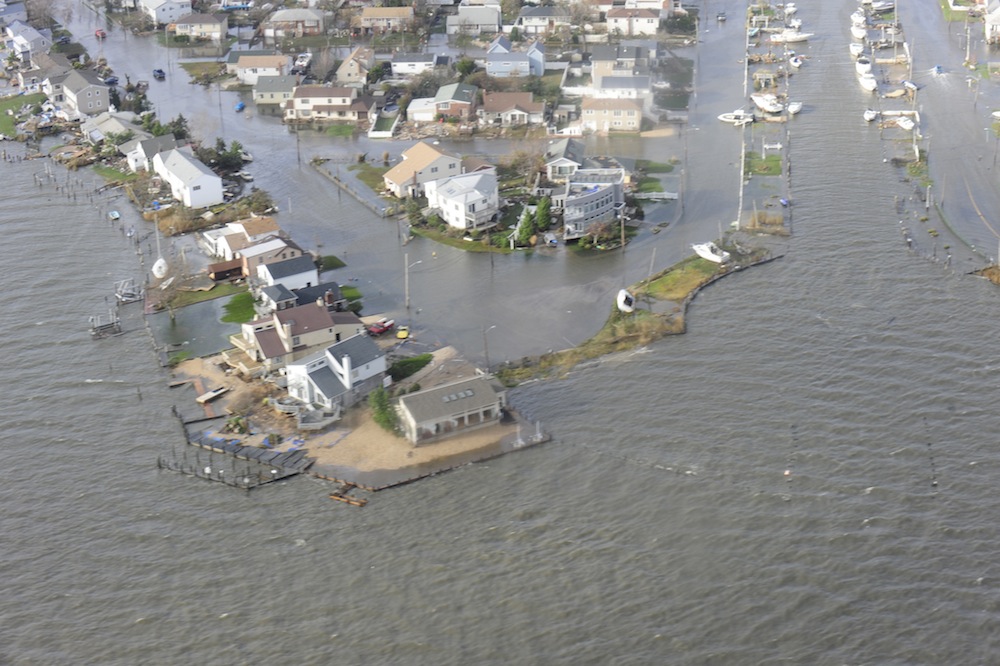Codes and standards concerning emergency backup power and other key resiliency matters should reflect lessons learned from Hurricane Sandy and other recent major storms, says Bhavesh Patel, vice president, global marketing for ASCO Power Technologies.
One standard, the NFPA 110: Standard for Emergency and Standby Power Systems, 2013 edition says, “EPSS (emergency power supply system) equipment should be located above known previous flooding elevations where possible.” And later states, “For natural conditions, EPSS design should consider the ‘100-year storm’ flooding level predicted by the Sea, Lake, and Overland Surges from Hurricanes (SLOSH) models for a Class A hurricane.”
“The qualifiers in the two paragraphs – ‘where possible’ and ‘should consider’ – can dilute the effect of the code if the project specifiers are not strict and careful in determining what ‘possible’ can entail,” Patel writes. “The words ‘where possible’ and ‘should consider’ are not as straightforward in conveying intent as a more emphatic ‘must,’ and leaves the door open for less sense of the need to comply.”
Patel notes that a post-Hurricane Sandy task force has recommended that New York City codes be updated to locate building equipment higher to avoid flood damage, require sewage valves to prevent backflows during flooding, and provide for easy access to backup generator hookups.
Related Stories
MFPRO+ News | Nov 21, 2023
California building electrification laws could prompt more evictions and rent increases
California laws requiring apartment owners to ditch appliances that use fossil fuels could prompt more evictions and rent increases in the state, according to a report from the nonprofit Strategic Actions for a Just Economy. The law could spur more evictions if landlords undertake major renovations to comply with the electrification rule.
Codes and Standards | Nov 21, 2023
Austin becomes largest U.S. city to waive minimum parking requirements
Austin, Texas recently became the largest city in the United States to stop requiring new developments to set a minimum amount of parking. The Austin City Council voted 8-2 earlier this month to eliminate parking requirements in an effort to fight climate change and spur more housing construction as Texas’s capitol grapples with a housing affordability crisis.
Codes and Standards | Nov 10, 2023
Washington state building codes to protect structures from wildfire provoke controversy
New building codes in Washington state intended to protect structures from wildfires are provoking backlash from builders, cities, and environmentalists. Critics charge that the rules that are scheduled to take effect March 15 are confusing, will increase housing costs, and could cause too many trees to be cut down.
Sustainability | Nov 1, 2023
Researchers create building air leakage detection system using a camera in real time
Researchers at the U.S. Department of Energy’s Oak Ridge National Laboratory have developed a system that uses a camera to detect air leakage from buildings in real time.
MFPRO+ News | Nov 1, 2023
Washington, D.C., Queens, N.Y., lead nation in number of new apartments by zip code
A study of new apartment construction by zip code showed Washington D.C., and the Queens borough of New York City are the hottest multifamily markets since 2018, according to RentCafe.
Adaptive Reuse | Nov 1, 2023
Biden Administration reveals plan to spur more office-to-residential conversions
The Biden Administration recently announced plans to encourage more office buildings to be converted to residential use. The plan includes using federal money to lend to developers for conversion projects and selling government property that is suitable for conversions.
Sustainability | Nov 1, 2023
Tool identifies financial incentives for decarbonizing heavy industry, transportation projects
Rocky Mountain Institute (RMI) has released a tool to identify financial incentives to help developers, industrial companies, and investors find financial incentives for heavy industry and transport projects.
Mass Timber | Oct 27, 2023
Five winners selected for $2 million Mass Timber Competition
Five winners were selected to share a $2 million prize in the 2023 Mass Timber Competition: Building to Net-Zero Carbon. The competition was co-sponsored by the Softwood Lumber Board and USDA Forest Service (USDA) with the intent “to demonstrate mass timber’s applications in architectural design and highlight its significant role in reducing the carbon footprint of the built environment.”
Resiliency | Oct 19, 2023
Jacksonville unveils 50-year strategy for resiliency to flooding, extreme heat, wildfires
The City of Jacksonville, Fla., recently released plans for Resilient Jacksonville, a 50-year resiliency strategy to reduce the risks from flooding, hurricanes, excessive heat, and wildfires, and to respond better to those events. The plan includes ways to stop the St. Johns River from flooding vulnerable neighborhoods, including those prone to flooding during heavy rain or hurricanes.
Building Materials | Oct 19, 2023
New white papers offer best choices in drywall, flooring, and insulation for embodied carbon and health impacts
“Embodied Carbon and Material Health in Insulation” and “Embodied Carbon and Material Health in Gypsum Drywall and Flooring,” by architecture and design firm Perkins&Will in partnership with the Healthy Building Network, advise on how to select the best low-carbon products with the least impact on human health.

















